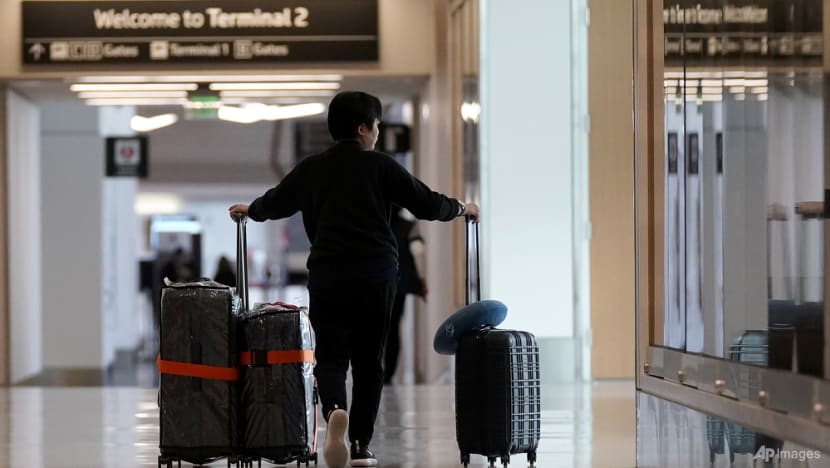Indonesia ditches tough import curbs on its migrant workers after public outcry
The strict curbs had sparked criticism, with concerns over their effectiveness and the added pressure on Indonesian migrant workers.


This audio is generated by an AI tool.
JAKARTA: Indonesia has rolled back tough curbs on foreign goods brought in or sent back from abroad by its migrant workers amid public criticism, less than two months after the measures took effect.
The regulations imposed strict limits - such as a two-bag cap per person, a maximum two pairs of footwear each and a cap of five textile products per pax. They were first outlined last year for Indonesian migrant workers and international travellers and came into force on Mar 10.
The decision to reverse the order for Indonesian migrant workers was agreed on by various ministries on Tuesday (Apr 16).
The rollback is aimed at offering convenience and fair solutions for those seeking to send goods to their families back home, Indonesia’s Ministry of Trade stated in a press release.
"With this relaxation, the Ministry of Trade seeks to acknowledge and honour the invaluable contributions of our migrant workers abroad, who serve as our foreign exchange heroes," the ministry added.
According to national legislation, an Indonesian migrant worker refers to "any Indonesian citizen who will work, currently works, or has done a work for wage" outside the country. This includes those who work for a legally incorporated employer or an individual employer or household, along with seafarers and fishermen.
Excluded groups are also identified. They include Indonesian citizens who own independent businesses abroad and "state civil apparatus or local workers who work in Indonesian missions".
A 2017 World Bank report stated that more than nine million Indonesians were employed abroad, with more than three-quarters of them being low-skilled workers.
The tough import measures were aimed at preventing the commercialisation of goods brought into the country and to ensure that items purchased overseas are strictly for personal use, according to Indonesian authorities.
But the move also sparked online debate over its effectiveness. There was strong criticism from some quarters, including from the head of the Indonesian Migrant Workers Protection Agency (BP2MI) Benny Rhamdani.
In arguing for a rollback, Mr Benny said the measures placed undue burden on Indonesian migrant workers, often resulting in their goods being held in customs facilities and inaccessible to their intended recipients.
"They laboured for years, saving money to purchase necessities for their families, only to witness these goods languish in warehouses, ultimately succumbing to damage," said Mr Benny as reported by CNN Indonesia.
While the policy U-turn removes constraints on the type or quantity of goods brought or shipped back by Indonesian migrant workers, they are still subject to taxes depending on the value of the products.
Shipments with a maximum customs value of US$500 per consignment, up to three deliveries annually (not exceeding US$1,500 per year) are exempt from import duties. Beyond that, a 7.5 per cent tax applies.












